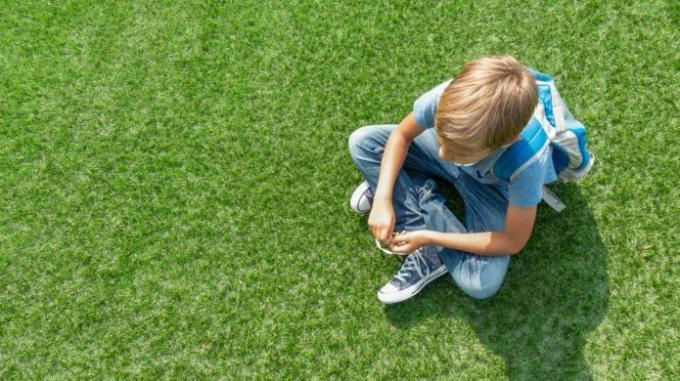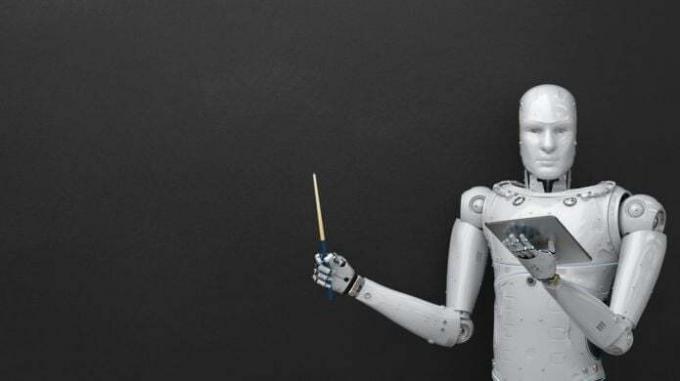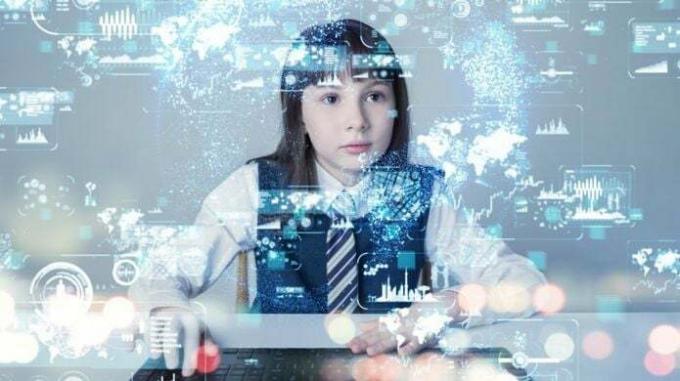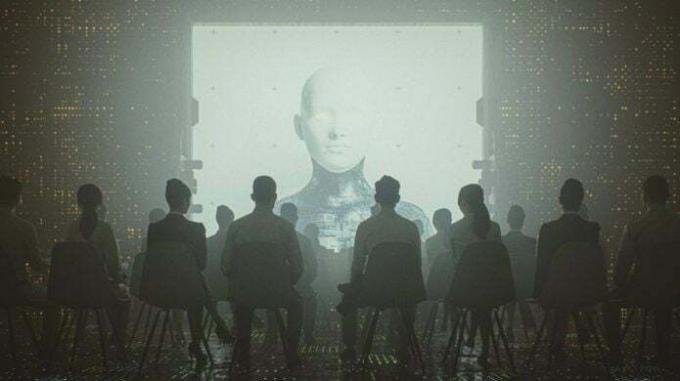Alex Beard is a teacher in south London. Anguished with the stagnation of the profession, he went in search of alternative ideas for his performance.
In view of this, he traveled to more than 20 countries, visited schools and improved innovative tools and methods for challenger21st century teaching.
see more
‘Atlânticas’ program takes black, indigenous and quilombola women to…
Confirmed: Samsung really is producing foldable screens for…
The book Natural Born Learners is the result of that journey. In it, Beard coupled notorious examples and reflected on the main issues that the field of education will face in later decades.
“Creativity, the ability to solve problems and the importance of teachers are the great challenges for schools. And all this in the midst of the great unknown of how to deal with new technologies and artificial intelligence ”, he stressed.
See below the position of the London professor in an interview with BBC News Mundo, on the occasion of the Hay Festival, in Cartagena, Colombia.
When teaching classes at a school in south London, on Kent Road, Alex Beard observed that he made the mistake of adopting outdated methods in the teaching process, this being the first of them.
“I realized that I was applying the methods that Socrates used in the agora, around 2,000 years ago, to teach children who had cell phones and lived in the future,” he said.
The second challenge deals with the focus that the field of education should give in relation to the future. Thus, the teacher in the classroom ends up teaching the children how to pass a test.

Teachers need autonomy and professionalism. They cannot be blamed for training young people to perform below expectations.
“I believe that we should transform the teacher into one of the most important people in society. Because, at the end of the day, they are the ones who will shape our creativity, our social cohesion, who will lay the foundations that lead to creating a strong and sustainable economy”, stressed Alex Beard.
In summary, Alex Beard argues that children need three things. “The first is to learn to think, but in a way that is consistent with the challenges of the future”. Here comes the criticality and the role they aspire to play in the world.
“The second is to learn how to act, but above all, how to be creative people”. Faced with numerous challenges, such as environmental and social ones, it is necessary for them to develop creativity and learn to work with the help of new technologies.

“And the third is to apply this creativity in solving the problems that the modern world presents”. This, in order to take care of themselves and those close to them, mainly working on emotional intelligence and empathy.
In the book natural born learners is discussed the role of education in helping to seek “the meaning of the things we are doing”.
In this way, some things have changed the way we understand education, this through research carried out by psychology, early development and even neuroscience.
Faced with this, cognitive scientists have concluded that there is a hierarchy of experiences, whose results lead to learning.
The insistence on repetition and memorization provokes an emotional reaction, “that is, they make you feel excited, sad, confused, and so on—you can retain more knowledge than through ‘Decoreba,'” he underlined.
O sense of teaching it may be linked to the execution of a job and a profession that he wants to follow, but for Beard this is a very limited view of learning.
“Something might make a lot of sense to you because it's something you love to do. It matters to you as a person.”
So, if you like music, mathematics, languages, and start studying the things you love, they have meaning for you, because of your identity and way of expressing yourself.
One of the reasons why the professor from London decided to make the trip was due to his reflection on mastering new technologies, social networks and the emergence of big data (analysis of volumes of data from internet use) among all areas.
The intention was to understand how new technologies and artificial intelligence can be applied in teaching. Not by chance, the first destination was Silicon Valley.
“There, I first saw a robot teacher. And it wasn't an android in front of a classroom: it was actually artificial intelligence software within an internet learning environment,” he commented.
There was a laboratory with a teacher and approximately ten five-year-old children in front of a computer with headphones on.
In the same way that the program helped the students, it could also perceive the strengths and weaknesses of each one of them, automatically adapting the lessons. At the end, he would come up with a personified learning program and pass it on to the teachers.

“Another example: in 2013, a study by the Oxford Martin School revealed that 700 professions could be replaced by robots in the future, but none of them Teaching-related jobs—i.e., elementary school, preschool, high school, and even college teacher—were with the days counted. And it's true. This happens because teaching is definitely a human process”, highlighted the professor.
Even if artificial intelligence or robots exist, the education lacks human interaction. People learn naturally, but they were born to learn in society. In the future there will be many technological developments, but they will be integrated by the teachers.
The risk is that artificial intelligence is better than the worst teachers in some parts of the world. In addition, there is the question of artificial intelligence being cheap, even if it is not superior to the education that a teacher can offer.
However, as Beard states, this is a pessimistic view of the future. The essential point is to invest in teachers, in their training, resulting in specialized professionals able to deal with technological tools.

“I believe, first of all, that teaching will be the most important job of the 21st century. We are living in an era in which the Earth's resources are running out, we are running out of nothing”, he highlighted.
Thus, the only thing that is unlimited is human intelligence, ingenuity and problem-solving skills. However, teachers are the ones who encourage this human potential, so it will be the most important work of the century.
“In my ideal world, I would train teachers in the same way as doctors. That is, the teachers would graduate from the university and then spend three years combining teaching with the knowledge of other, more experienced teachers,” he explained.
Thus, professors would not only replicate what they learned at the university, but would develop the work together with another professor, improving their knowledge.
O greatest educational challenge in Latin America is inequality, comparing the highest to the lowest level. This inequality, which is even clearer between urban centers and rural areas, needs to receive comprehensive and urgent attention.
Another potential challenge is the democratization of access to education is quality education.
Finally, the third and most critical point is the teachers. “We have to solve the training problems, but not just that, of training, of promoting the profession, so that they don't change the classroom for better paid jobs”, he warned.
Another of the challenges faced in Latin America is the difficulty, or almost impossibility, of the population of some regions to access urban centers.
In view of this, new models need to be created so that children and young people can have a quality education in places where the teacher cannot reach.
“And the example of khan academy it is very good because it manages to properly use new technologies to create projects of distance education, which work very well and can contribute to the good performance of students”, he commented.
“We are moving towards a society that shares its ideas, based on an unrestricted source of knowledge”, he commented.
For the teacher, one of the biggest problems of the current educational system is to provide continuous competition among students. This practice creates a closed environment, with little creativity and lack of collaboration, items that should be fundamental to the world.

We envision challenges that can only be overcome through collaboration and human imagination. Thus, it is necessary to have professionals able to develop a collective intelligence, in addition to individual intelligence.
“There are several very serious studies that demonstrate the effectiveness of open systems, where creativity is encouraged, where more ideas are generated. And this is what nature itself teaches us: as an animal grows, it manages to be much more efficient when it comes to realizing and channeling the energy it needs to survive,” he said.
*With information from BBC News Mundo
Read too: MEC publishes text with new guidelines for teacher training